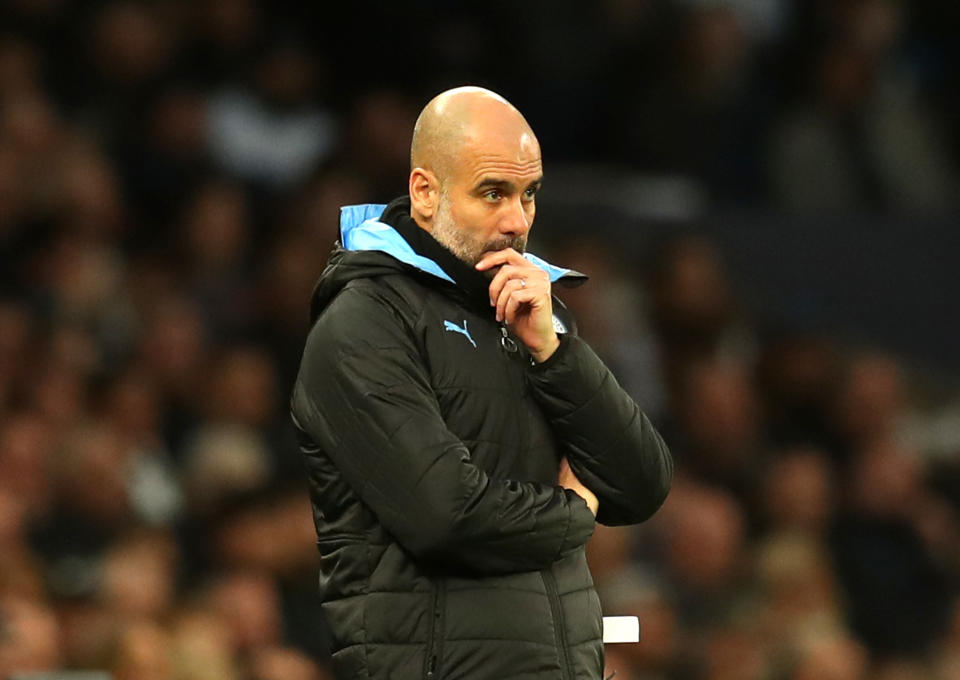UEFA just changed the game with Manchester City's Champions League ban
At long last, UEFA has decided to take its own rules and authority seriously.
On Friday, in a shock decision that immediately roiled the soccer world, the European governing body banned Manchester City from European competition for two seasons for violating the Financial Fair Play regulations mandating that clubs break even under their own economic power. Less significantly for the uber-wealthy, United Arab Emirate-owned club, City was fined 30 million euros as well.
“The Adjudicatory Chamber, having considered all the evidence, has found that Manchester City Football Club committed serious breaches of the UEFA Club Licensing and Financial Fair Play Regulations by overstating its sponsorship revenue in its accounts and in the break-even information submitted to UEFA between 2012 and 2016,” UEFA wrote in a statement. “The Adjudicatory Chamber has also found that in breach of the regulations the Club failed to cooperate in the investigation of this case by the CFCB.”
The move came as a surprise because, while City had been under scrutiny for years as various infractions worked their way through the investigatory and disciplinary processes, the Financial Fair Play rules had felt fairly toothless. Several major clubs were quite clearly propped up by significant outside money – either through direct injections from owners or flagrantly overinflated sponsorship deals with companies affiliated with ownership – yet were never punished beyond a hefty fine and a slap on the wrist. And while Italian and Turkish powerhouses AC Milan and Galatasaray were previously suspended from continental competition, none of the real contenders were ever punished that way.
It was a penalty of the kind of severity governing bodies are loathe to mete out, lest a challenge to their authority ensues. Major League Baseball, for instance, was far more timid in its response to the Houston Astros sign-stealing scandal.
But UEFA struck City with all its might. And the ramifications are immediate and far-reaching.

City has the right to appeal to the Court of Arbitration for Sport. And while CAS has a habit of reducing punishments from UEFA, usually when a two-window transfer ban is imposed for illegally signing underage players, it never wipes it out completely. City’s ban, then, is likely to last at least one season, if it doesn’t survive as a multi-year ban.
The club’s exclusion from the Champions League for at least one campaign would effectively end its dynasty. The club is on a run of four Premier League titles in the last eight campaigns, but the main prize for the UAE ownership, which has sunk more than a billion dollars into propping up an erstwhile floundering club as a prestige play, was to conquer Europe. And City hasn’t yet come close to that. In its first eight Champions League campaigns, it has reached the semifinals just once, losing to Real Madrid in 2016, and the quarterfinals only twice.
Unless City finally wins the Champions League this season, which will be a heavy lift after drawing Real Madrid to start the knockout stage, the ban will have a disastrous effect on the club’s ambitious project, which is a global effort also encompassing teams in New York City and Australia.
Because an exodus of star players feels inevitable. City’s core has mostly been at the club for a considerable time already. Standout forwards and playmakers like Raheem Sterling, Kevin de Bruyne and Bernardo Silva are in their primes. Two seasons, or even one, without appearing in club soccer’s foremost competition will probably feel like an intolerable sentence to them. Even the specter of such a banishment, while City awaits word on its appeal to CAS, could drive players toward the exit as they hedge against the uncertainty.
And then there’s Pep Guardiola. In his three jobs in management, he has never stayed longer at a club than four seasons. He was FC Barcelona’s much-laureled manager for four seasons. He stayed at Bayern Munich for three triumphant campaigns. He’s now in his fourth year with City. And while he renewed his contract through 2021 two years ago, speculation that this would be the Spaniard’s final year in Manchester was already rampant – even though he recently said he was “100 percent” staying.
But City has fallen off significantly this season, effectively finding itself out of the running in the Premier League before Christmas, behind a rampant Liverpool. It already feels like the team is in need of a major makeover and a year out of the Champions League could force Guardiola to reconsider and leave this summer as well.
Rebuilding without the superstar manager and the prospect of a European ban – not to mention the added complication of recruiting foreign players now that Brexit has been triggered – could set City and its quest for European dominance back several years.
And that cautionary tale will be heeded by other clubs.
UEFA just changed the game.
Leander Schaerlaeckens is a Yahoo Sports soccer columnist and a sports communication lecturer at Marist College. Follow him on Twitter @LeanderAlphabet.
More from Yahoo Sports:

 Yahoo Sports
Yahoo Sports 

